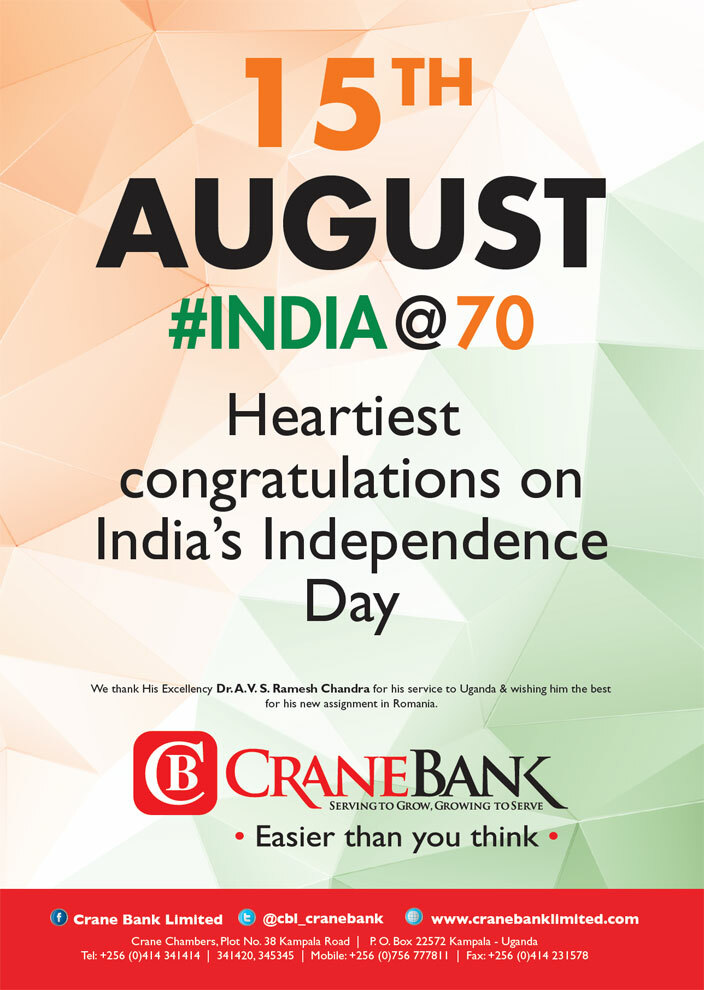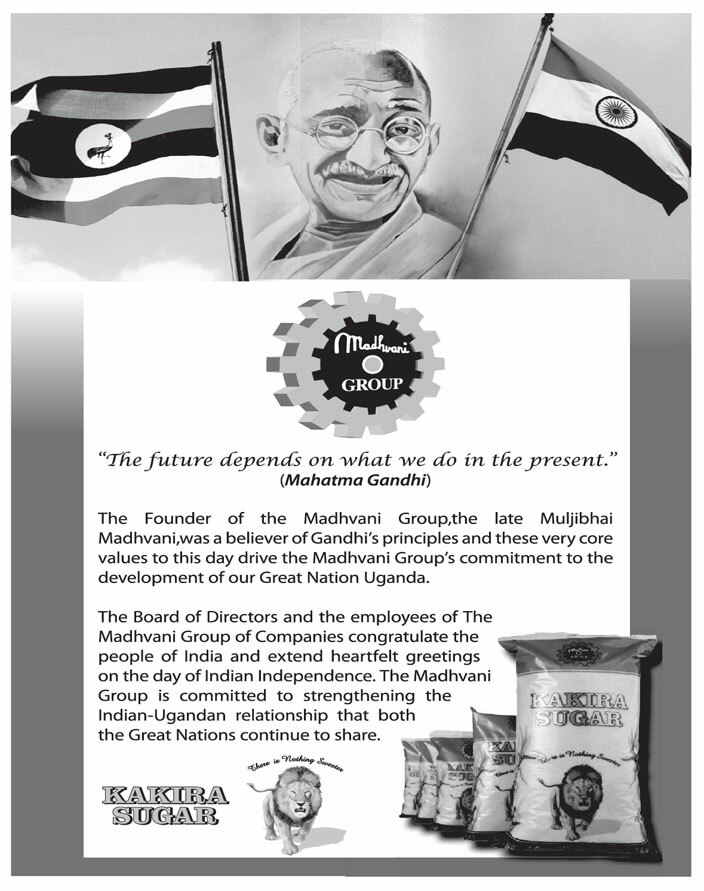Indi Vision
On August 15, 1947, Jawaharlal Nehru, who had become the first prime minister of India that day raised the Indian National Flag above in Delhi
Indians in Uganda warm up to mark Independence Day
By Owen Wagabaza
Independence Day, also called the India day, is observed annually on August 15 as a national holiday not only in India, but among Indians all over the world. The day is used to commemorate the nation's independence from the British Empire on August 15, 1947.
India attained independence following an Independence Movement noted for largely nonviolent resistance and civil disobedience led by the Indian National Congress (INC). Independence coincided with the partition of India, in which the British Indian Empire was divided along religious lines into the Dominions of India and Pakistan.
On August 15, 1947, Jawaharlal Nehru, who had become the fi rst Prime Minister of India that day, raised the Indian national fl ag above the Lahori Gate of the Red Fort in Delhi. On each subsequent Independence Day, the prime minister raises a fl ag and gives a speech.
A day of celebration
Just like in other parts of the world, the Indian Day is celebrated in Uganda, with lots of activities. "It is a day when we showcase our culture to the world. This year, fi ve major artists from Bollywood are coming to Uganda.
They will come with a group of 17 performers Indians in Uganda warm up to mark to entertain not only the Indians in Uganda, but also Ugandans who will be in attendance," says Trushar Upadhay, the vice-chairman of the Indian Association of Uganda.
Though the Independence Day will be held today, Indians in Uganda will celebrate the day at Kololo on Saturday. They also use the day to raise funds to support the association's corporate social responsibility activities.
"We sponsor 10 heart surgeries in India every year. We also run an education scholarship, where we sponsor 100 students in vocational institutes every year," says Dave Chirag, the association's chairman.
According to Chirag, they saw it right to support vocational education to not only enhance the skilled work force in the country, but to also reduce on unemployment. "Because they are equipped with skills, they are able to open up their own small businesses and even employ other youth.
There is a lot of unemployment in Uganda today because graduates are leaving school without skills. We need job creators, and not job seekers to take our country to another level," Upadhay says.
The association also holds blood donation drives in various places around the country. According to Upadhay, the Indian association has collected over 10,000 units of blood in the last four years, far higher than any other association in the country.
Lessons that Ugandans can learn from the Indians According to Upadhay, Indians have excelled in business, mostly due to a strong saving culture. "Whatever we earn, we make sure we save something daily, monthly or even annually.
We reinvest the savings into the business and this helps it to grow," he explains. The education curriculum should also be improved to meet the world needs. "The curriculum we are using was also used in the 1970s.
A lot has changed, in India, for example, computer lessons are taught as early as Primary One, this is what we want to see in Uganda," Upadhay notes. According to Chirag, if Uganda fully utilises her potential, she has the opportunity to become a powerhouse in ICT in the whole of Africa. "Uganda is a very good English-speaking country, far better than Kenya, Tanzania and many other countries in Africa, with a very youthful population. All we need is to utilise this potential and the rest will be history," Upadhay argues.
Way forward "We congratulate the Indians in Uganda upon reaching their Independence Day and we call on the people to stay united and say no to terrorism that has taken the world by storm. We will continue to play a role in the development of the country," Chirag noted.

